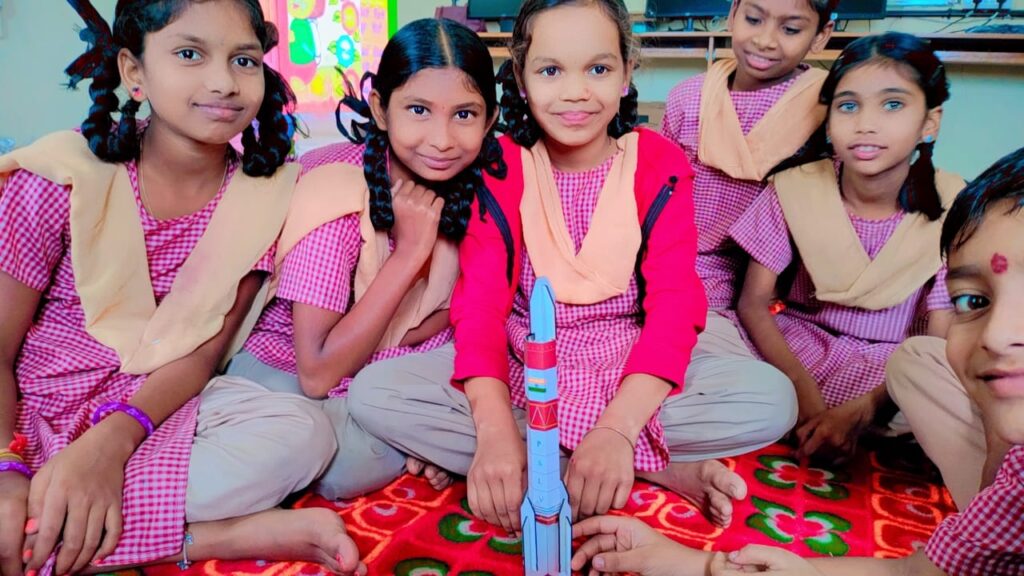

India, with its vast diversity, faces a unique challenge when it comes to rural education. While urban areas are gradually advancing with access to technology, better teaching methods, and skill development, rural education still grapples with outdated systems and a lack of resources. However, for India to truly harness its demographic potential, rural children must be empowered with the right skills, especially those aligned with the 21st century.
The State of Rural Education
The challenges faced by rural students are multifaceted. Limited access to quality education, outdated curriculum, shortage of trained teachers, and insufficient infrastructure are just a few of the hurdles. These challenges leave rural students at a significant disadvantage, especially in a world that increasingly demands not just academic knowledge but a variety of skills to succeed.
In the 21st century, education needs to go beyond traditional textbook learning. It requires imparting skills that will help students navigate a rapidly evolving world—one where critical thinking, creativity, communication, and collaboration are as important as the core academic subjects.
What are 21st-Century Skills?
The term “21st-century skills” refers to a broad set of abilities that help individuals succeed in modern-day personal, academic, and professional environments. Some of these essential skills include:
- Critical Thinking and Problem Solving: In today’s fast-paced world, students need to learn how to analyze situations and solve problems creatively. Encouraging rural children to ask questions, think independently, and find solutions will prepare them for real-world challenges.
- Collaboration and Teamwork: The modern workplace is global and highly collaborative. Teaching rural children to work effectively in teams, share ideas, and communicate openly is crucial for their future careers.
- Digital Literacy: Technology is transforming every sector. While rural India may lag in access to digital resources, it is essential to introduce children to basic digital skills. Digital literacy will open doors to online learning, provide access to information, and enhance their employability.
- Communication Skills: The ability to express ideas clearly, both verbally and in writing, is key. Rural children often struggle with this due to language barriers or lack of exposure. By fostering good communication skills, we can boost their confidence and ability to articulate ideas.
- Creativity and Innovation: Rural areas are rich with cultural traditions and local knowledge. Tapping into this creativity and encouraging children to innovate—whether in the arts, agriculture, or technology—can lead to sustainable solutions to local problems.
Skills Beyond Academics
While 21st-century skills are essential, rural children also need a broader set of life skills to thrive. Some of these include:
- Financial Literacy: Teaching children the basics of managing finances, budgeting, and saving is critical, especially in rural areas where financial planning is often overlooked.
- Entrepreneurial Skills: Given the agricultural base of rural economies, entrepreneurial thinking can encourage students to take initiative in their communities. Skills like risk-taking, business planning, and resource management can be taught through real-life projects.
- Emotional Intelligence (EQ): Building self-awareness, empathy, and social skills helps children navigate the complexities of life. Rural areas often have tight-knit communities, and fostering emotional intelligence can enhance both personal and communal well-being.
- Sustainability and Environmental Awareness: Rural students are closely connected to the land. By teaching them about environmental sustainability, conservation, and climate change, we not only equip them for future challenges but also help preserve local ecosystems.
The Role of NGOs and Government Initiatives
The government of India has launched several initiatives like the Sarva Shiksha Abhiyan, Rashtriya Madhyamik Shiksha Abhiyan, and e-learning platforms to enhance the quality of rural education. Additionally, non-governmental organizations (NGOs) are playing a crucial role in bridging the gap by providing resources, training teachers, and introducing innovative learning models.
Thinksharp Foundation, for instance, focuses on improving learning outcomes for rural children by implementing digital classrooms, providing better infrastructure, and encouraging skill development. These efforts are essential in making sure rural children don’t get left behind.
Conclusion: A Holistic Approach to Rural Education
To ensure that rural children in India thrive in the competitive global economy, there needs to be a shift from traditional rote learning to a more skills-based, holistic approach. By integrating 21st-century skills with life skills, and leveraging technology to bridge the education divide, we can create a future where rural children have equal opportunities to succeed and contribute to India’s growth.
The challenge is monumental, but so is the potential. With the right support, education can become the key that unlocks countless opportunities for rural India’s youth.
Written By – Thinksharp Foundation
(73)
